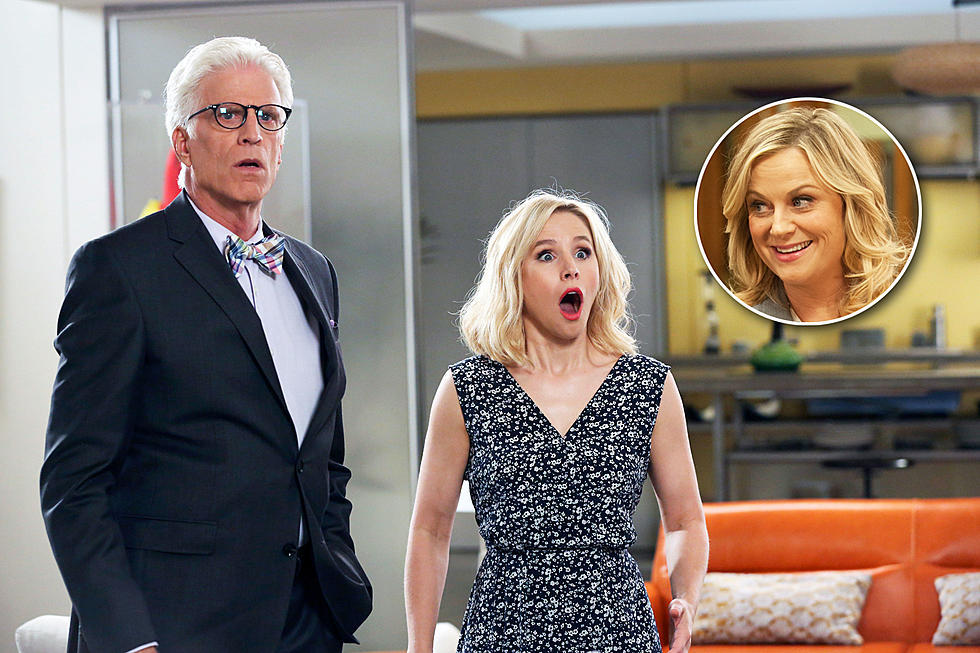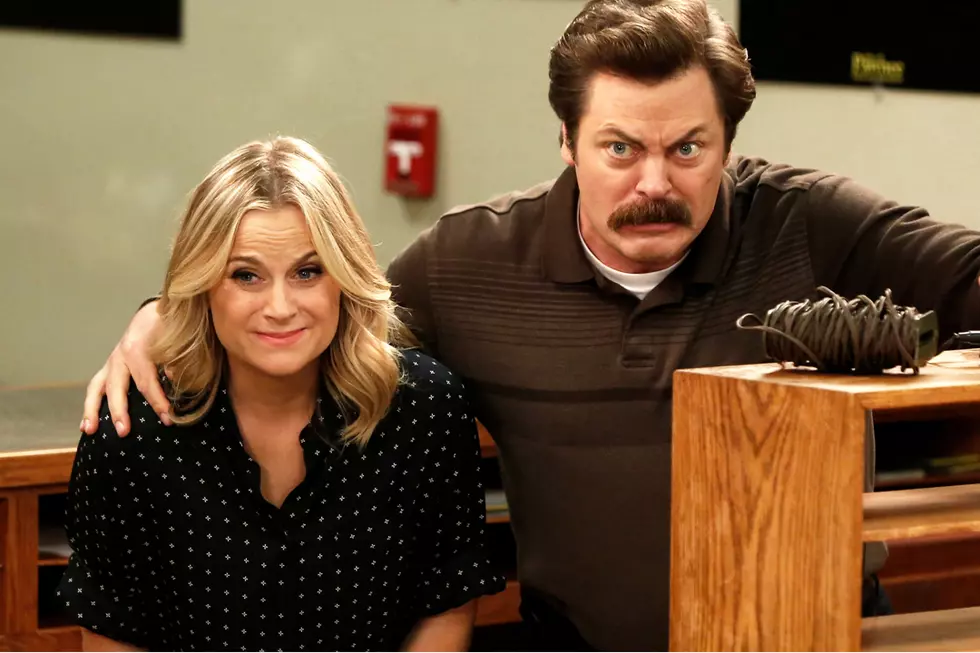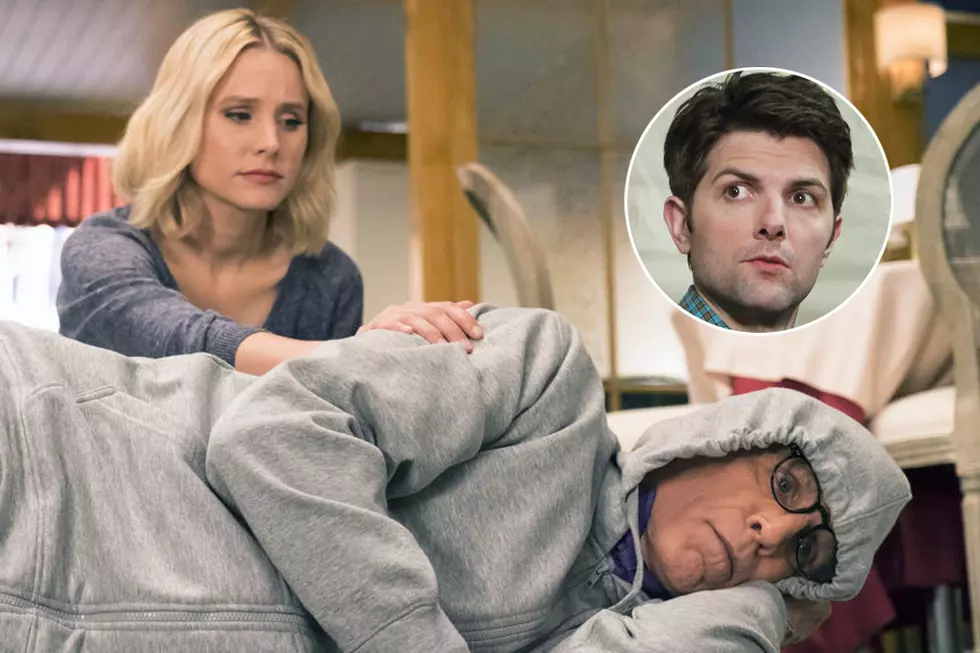
Monday Morning Critic: 10 Great Shows to Binge Watch Over the Holidays
Welcome back to another installment of the Monday Morning Critic. In this space each week, I’ll be looking at the week that was in addition to the week ahead in television. The format will shift each week, as the world of TV will dictate the form and content of each piece.
In this week’s installment: two classic comedies wrap production, a TV-centric documentary provides a must-watch experience for fans of the medium, and I make some holiday bingewatching suggestions.
****
Both ‘Parks and Recreation’ and ‘Cougar Town’ filmed their series finales this past week, and while those episodes will unfurl over the first few months of 2015, it still feels akin to the end of an era. At their peak, no other shows on TV could do what these two shows did best: Demonstrate that change is not only possible, but necessary, once you reach adulthood. It’s not a particularly sexy ethos, but it’s one both showed embraced while simultaneously tickling the funny bones of its audience.
On ‘Parks,’ Leslie Knope’s initially overbearing personality turned into a mechanism by which her enthusiasm and perseverance couldn’t help but inspire and improve those around her. It’s easy to look at someone like April Ludgate as the primary beneficiary of Leslie’s influence. But each and every person on the show transformed themselves through their interactions with Leslie, even the intractable Ron Swanson. The topics dealt with in ‘Parks’ only seemed small, but Pawnee is a better representation of how most people actually live and get things done than any show set in New York, Los Angeles, or Chicago. Trying to organize something like The Harvest Festival doesn’t seem as dramatic as defusing nuclear bombs, but that didn’t make Leslie’s struggle to make that happen unimportant. ‘Parks’ trafficked in the business of every day, and mined real humor and pathos from those simply trying to do a bit of good when inertia is the dominating force. The lives of most people aren’t truly affected by those in Washington, but by those who live on the same street.
Or cul-de-sac, as the case may be, which brings us to ‘Cougar Town.’ I’m guessing a lot of people have forgotten about this show since it left ABC for TBS, and to be honest, the ratings weren’t exactly stellar on ABC, either. That’s too bad, since the initially large audience was turned off by the show’s initial episodes and weren’t around when the show found its footing about a third of the way through its first season. As on ‘Parks,’ the stakes are deceptively high on ‘Cougar Town,’ where silly games and nimble wordplay mask deep worries behind the characters’ eyes. These are co-dependent people that aren’t always sure they are living life correctly, and don’t always know if their interlocking lives are propping themselves up or holding each other back. Come for the Penny Can, and stay for the mid-life crises!
But what lifts ‘Cougar Town’ up is the fact that rarely more than one character is down at a particular point in time, which makes this less about a slow fade in existential ennui and more a recognition of the small moments that validate the tougher ones. Both ‘Parks’ and ‘Cougar Town’ depict struggle as a necessary means to a satisfactory end, whether it be Leslie navigating small-town politics, Grayson Ellis navigating his trust issues, or Laurie Keller navigating her deep-seeded insecurities. Many fault programs such as these for not having the type of “real” stakes that makes these must-see programs. But I’d argue that the simple act of building a park or staging a secret beach wedding feel more relatable than anything Jack Bauer has ever done within a 24-hour period. I like ‘24’ a lot. But there’s something about the small stories that television can tell that make it a special medium, and these two shows have made those small stories incredibly large due their examination of what gets these characters out of bed in the morning. At a time at which it would be easy to calcify one’s life, ‘Parks and Reaction’ and ‘Cougar Town’ suggest we can always be a little better, a little kinder, and a little more open.
****
If you’re reading a column like this, than the documentary ‘Showrunners’ is probably up your alley. I had heard about this in the works for a while, but just recently saw that it’s available for rental/purchase via iTunes. A look at how certain showrunners past and present approach their craft, it’s a must-see for anyone with even a casual interest as to how the sausage is made. It’s not a film that will rip off the lid of Hollywood and expose the dark underbelly of the entertainment industry. Rather, it’s an illuminating look into the sheer amount of moving pieces that go into making even the “simplest” TV shows.
I put “simplest” in quotes there because, obviously, putting together any episode of TV is a monumental undertaking that involves hundreds of people. What ‘Showrunners’ gets across quite clearly is how that position isn’t simply responsible for the quality of the program, but is primarily responsible for the welfare of those making it before the episode ever makes it to air. The very thing that makes TV so exciting for these individuals–getting to write something on the first of the month an seeing it air at the end of the month–is the same thing that drives most into early retirement at best and almost crippling burnout at worst. (‘The Big Bang Theory’ showrunner Bill Prady seems three words away from a nervous breakdown during every talking head segment.)
Much like James Franco’s ‘Saturday Night Live’ document now available on Hulu, nothing in ‘Showrunners’ will be massively surprising on a macro level. But what both documentaries get right are delivering specific examples that bring the audience’s more casual knowledge into sharper focus. It’s one thing to understand that TV shows often have multiple episodes in various stages of production. It’s another to watch ‘Bones’ showrunner Hart Hanson essentially juggle a dozen flaming torches while also rub his stomach and pat his head. ‘Showrunners’ is catnip for anyone who enjoys watching the creative process in motion, and how that conflicts with the business of television. Even if this documentary doesn’t have the fireworks of the recent Sony hacks, there’s still enough tension within ‘Showrunners’ to provide some grit alongside a very entertaining 90-minute documentary.
***
Now that it’s December, you might be looking for some television to fill in the gaps now that most shows have gone on winter break. Or maybe you’re heading home to see family and are looking for a way to escape them for a moderate amount of time. Trying to jump into a long-standing series at this point can be daunting. But there are plenty of shows on the major streaming services that will be worth your while and not feel like a huge burden to complete. Here are just a few well worth checking out. For each, I’ve listed out the number of episodes and total viewing time to complete.
‘The Wrong Mans’ (Hulu: six episodes, three hours)
You’re about to hear a lot about James Corden, as he’s one of the leads in the upcoming film adaptation of ‘Into The Woods’ and will take over for Craig Ferguson next summer on ‘The Late Late Show.’ And while his earlier series ‘Gavin & Stacey’ might be the superior series, this comedy/drama/spy hybrid tells a complete and wholly original story in less time than an average Peter Jackson film. If you start watching now, you’ll have plenty of time to catch up before the second series (itself only two hours) will drop around Christmas.
‘Transparent’ (Amazon: 10 episodes, approximately four and a half hours)
‘Transparent’ just missed going on my Top Ten of 2014 list, but it’s still a show I feel as close to required viewing as anything in the past season. It’s rich with small moments that echo long after the episode has ended. In its depiction of its damaged but colorful cast of characters, ‘Transparent’ reaches as many moments of grace as it does utter heartache. It’s disarmingly funny, even while often showing cruel, callous people casually destroy those who have the unfortunate luck to cross their paths. It’s a show I’m still wrestling with in terms of its overall effectiveness, but the fact that I’m still thinking about it means it did something right.
‘Black Mirror’ (Netflix: six episodes, approximately five and a half hours)
Examining the dark side of technology in an approach akin to ‘The Twilight Zone,’ this unnerving but brilliant anthology series has an amazingly ability to take a simple idea and move towards its logical, horrifying extreme within the course of a single episode. Many have been, and will be, put off by the subject manner of its initial episode, but this two-season batch of episodes are amongst the nerviest things I’ve seen in some time. Believe the hype on this one.
‘Spaced’ (Hulu: fourteen episodes, approximately six hours)
Whenever someone asks me to “surprise” them with a show recommendation, this is usually the DVD set I grab off my shelf. It’s geeky, romantic, sarcastic, visually inventive, and chock full of memorable characters. Some of the references are dated (especially Simon Pegg’s character’s obsession with ‘The Phantom Menace’), but this is an all-time classic show about twenty-somethings awkwardly moving towards adulthood without a clue how to do so.
‘Broadchurch’ (Netflix: eight episodes, approximately six and a half hours)
Forget the American version that just aired. Actually, judging by the ratings for ‘Gracepoint,’ none of you watched anyways. If you missed this show on BBC America the first time, it’s finally available to stream on Netflix. Moody, atmospheric, and dripping with melancholy, this is not a show that will provide a lot of holiday cheer. But it will provide a haunting experience thanks to the show’s commitment to steer clear of the clichés inherent in this type of long-form investigative serial.
‘Enlightened’ (Amazon: eighteen episodes, approximately eight hours)
My pick for the best show of 2013, ‘Enlighted’ is now available on Amazon through its partnership with HBO. I won’t lie: You’ll either fall head over heels with this show or stare at it in a dumfounded manner before giving up entirely. But for those that lock into its rhythms, you’ll find one of the best shows in recent memory about the need for connection in a technological age. It’s almost a companion piece to ‘Black Mirror,’ except ‘Enlightened’ posits there’s a still a way to maintain dignity and compassion even as manmade towers fill the sky with increasing rapidity. This isn’t a religious show, but it’s a deeply spiritual show, and one that touched me deeply.
‘Terriers’ (Netflix: thirteen episodes, approximately eight and a half hours)
My pick for the best show of 2010, ‘Terriers’ is another show cut down far too early. The title was kinda terrible, and the marketing campaign was even worse. Damnit. Between this and ‘Enlighted,’ you have two of the three cancellations that actually wounded me. (The other, ‘Enlisted,’ was my third favorite show of this past season.) Describing this show–which features two private investigators looking into shady dealings in a lazy California town–does not do it justice. This is all about the chemistry of the leads (Donal Logue and Michael Raymond-James) and the charming, breezy, ambiguous, and ultimately heartbreaking path that these two follow. As an added bonus, it has one of the best theme songs in recent television history. Go watch this show. And thank me later.
‘Firefly’ (Netflix: fourteen episodes, approximately nine hours)
What do you mean, you’ve never watched ‘Firefly’? Go watch ‘Firefly,’ damnit. There’s a whole ‘verse of shows worth watching online, but this should be on everyone’s priority list, regardless of season.
More From ScreenCrush









